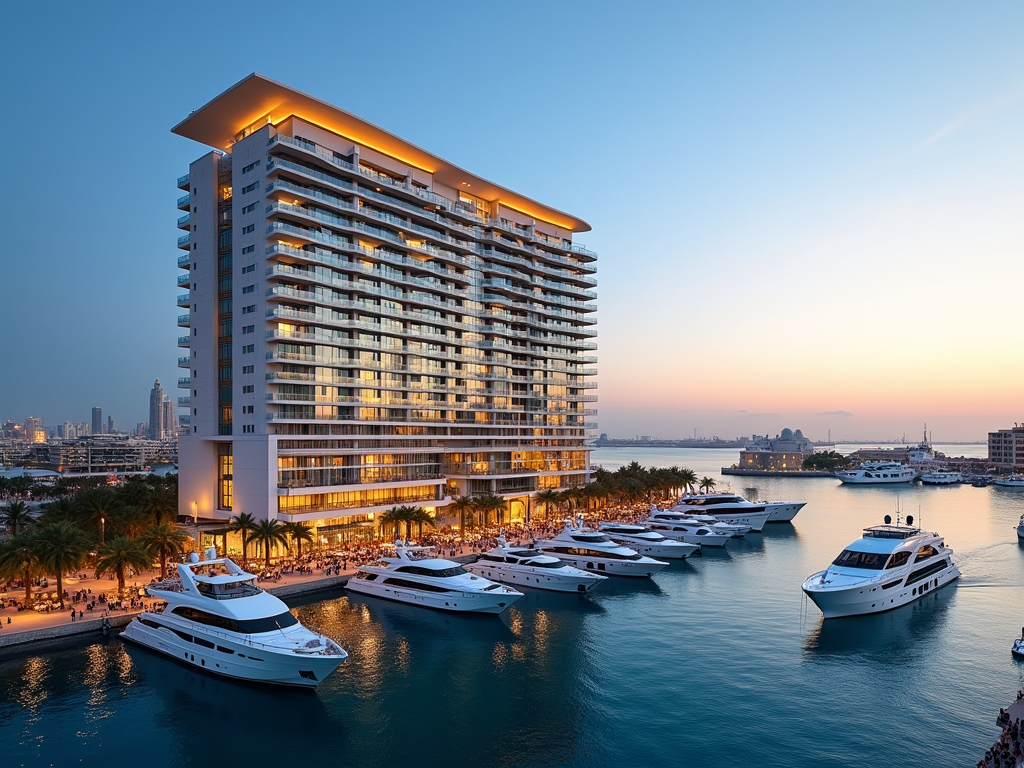Investing in property in Dubai can be an exhilarating journey, given the city’s dynamic real estate market and its status as a global hub. However, it’s essential to navigate this landscape carefully to secure a profitable and satisfying investment. Key considerations include understanding your financial capacity, knowing the legal requirements, recognizing the neighborhood dynamics, inspecting the property itself, and evaluating the potential return on investment (ROI). In this article, we will delve into these essential factors that should guide your purchasing decisions.
Understanding Your Financial Capacity

Before diving into the property market, it’s crucial to have a clear understanding of your financial capacity. Evaluating your budget will help you avoid overspending and financial strain later on. Consider the following points:
- Determine your total budget: Include purchase price, lawyer fees, and additional costs.
- Consider financing options: Look into mortgages, and ensure you meet eligibility requirements.
- Factor in ongoing costs: Account for property maintenance, service charges, and local taxes.
- Assess potential rental income: If you’re interested in renting, evaluate the market rates in different areas.
- Prepare for currency fluctuations: If you’re an international buyer, be mindful of how exchange rates can affect your purchasing power.
Knowledge of Legal Requirements

Dubai’s real estate laws can be intricate, particularly for foreign buyers. Understanding the legal framework can prevent complications in your acquisition process. Here are critical legal factors to examine:
- Ownership Regulations: Research the laws regulating ownership for foreigners, especially in freehold vs. leasehold areas.
- Property Title Deed: Ensure the property has a clear title deed free from any disputes.
- Real Estate Fees: Be aware of the various fees, including registration, transfer, and related administrative costs.
- Documentation: Prepare essential documents such as passports, residency visas, and proof of income.
- Working with a Lawyer: Consider hiring a local real estate lawyer to navigate the legal complexities of the transaction.
Recognizing Neighborhood Dynamics
The location of your property can define both its value and your living experience. Understanding the neighborhood dynamics is vital for making a sound investment. Here are some elements to consider:
- Accessibility: Evaluate the area’s transport links, including proximity to metro stations, bus services, and main road access.
- Amenities: Check for nearby facilities such as schools, hospitals, supermarkets, and recreational areas.
- Real Estate Trends: Investigate property value trends in the area to gauge future growth potential.
- Community: Research the neighborhood demographics to ensure it aligns with your lifestyle or target rental clientele.
- Safety: Assess crime rates and overall security of the area for peace of mind.
Inspecting the Property
A thorough inspection of the property is necessary to ensure its condition and suitability for your needs. This can save you from unexpected costs post-purchase. Pay attention to:
- Structural Integrity: Check for cracks, water damage, or other signs of deterioration.
- Utilities: Ensure all utilities, including water, electricity, and internet, are fully functional.
- Quality of Finishes: Inspect the quality of materials used and any fixtures or fittings.
- Space and Layout: Assess if the property’s layout meets your personal or rental needs.
- Neighborhood Noise: Visit at different times to gauge noise levels from traffic or social activities in the area.
Evaluating the Potential Return on Investment (ROI)
Understanding the potential ROI of a property is vital if you plan to generate income or eventually sell. Analyze the following aspects:
- Market Rental Rates: Research current rental prices in the area to estimate potential income.
- Occupancy Rates: Look at how quickly properties are leased in the neighborhood to gauge demand.
- Future Development: Investigate any future projects that may enhance or detract from property values in the vicinity.
- Resale Value: Analyze historical price trends to assess future resale opportunities.
- Economic Conditions: Keep an eye on the broader economic factors influencing the Dubai real estate market.
Conclusion
Purchasing property in Dubai can be an exceptional opportunity if approached meticulously. By understanding your financial capacity, familiarizing yourself with the legal requirements, recognizing neighborhood dynamics, inspecting the property thoroughly, and evaluating potential ROI, you can make informed decisions. Each step contributes to ensuring that your investment grows in value while meeting your personal or financial objectives. Always conduct thorough research, consult professionals where necessary, and weigh your options to secure a successful purchase in this vibrant market.
Frequently Asked Questions
1. How do I finance a property purchase in Dubai?
You can finance a property purchase in Dubai through bank mortgages. Most banks offer loans to expatriates, but you will need to meet certain eligibility criteria, including a good credit score and a down payment, typically ranging between 20-25% of the property value.
2. What are the closing costs when buying a property in Dubai?
Closing costs can vary but generally include registration fees (4% of the purchase price), valuation fees, and agency fees (approximately 2%). Be prepared for other potential costs such as maintenance deposits and legal fees.
3. Is it safe to buy property in Dubai as a foreigner?
Yes, it is generally safe to buy property in Dubai. The government has established legal protections for property buyers and offers options for foreign ownership in designated freehold areas.
4. Can I rent out my property in Dubai?
Yes, as an owner, you can rent out your property in Dubai. However, you must ensure that you comply with local regulations, including obtaining a rental permit and following Dubai’s rental laws.
5. What are the most popular areas to buy property in Dubai?
Popular areas for property investment in Dubai include Dubai Marina, Downtown Dubai, Palm Jumeirah, Business Bay, and Jumeirah Village Circle because of their amenities, lifestyle offerings, and potential for value appreciation.
